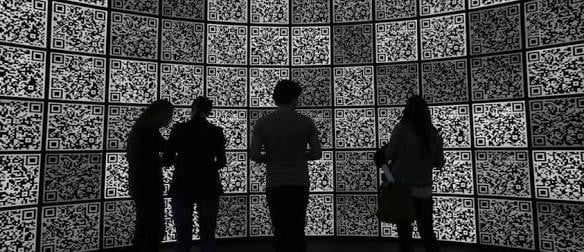

When I was a pesky, little 10-year-old, I firmly believed that life would end at 30. There were no specific ifs or buts in my mind about the said matter. I was sure about it as a devil is in London -- or Lahore, if you may.
In a nutshell, there was little doubt in my head that life began at 15 and one had no practical purpose of existing beyond 30. It took me another couple of decades to realise the bare arrogance of this notion, as I found myself living in this marvellous era that we call the ‘digital age.’ The fact of the matter is, we are feeling more alive (read: younger) today than we ever did before, and one can’t help but think that it might have something to do with the advent of the Internet.
The internet started making its presence felt in Pakistan in the early 2000s when, perhaps, the biggest achievement for a user was to own an email account. After spending the initial years of my life with nothing but the television for entertainment purposes, the internet seemed like a luxury, an exciting prospect. But societies have always reacted to new technologies with alarm. More than a hundred years ago, when the telephone was introduced, there was some hand-wringing over the ‘social dangers’ that the new technology would supposedly pose: how it would bring down the society as a whole and how the humanity would never be able to have civilised conversations again.
The same reaction was seen when television came into being -- and, later, when the social media emerged. People are terrified of emerging technologies, mostly because they do not understand them.
Most of us fail to understand the phenomenon that we are experiencing at the moment -- i.e. the digital age -- owing to the probable dangers it poses. While romanticising the wonders of the past is understandable, how can we forget the sheer agony of trying to communicate with someone in the times that have gone by? From ‘placing a three-minute call to the US’ that would seldom get through, to never getting a letter on time because it would conveniently get lost somewhere in transit -- our life back then was not hunky-dory, and that is an understatement.
I’d just say that our grandparents would have been thrilled to have the extent of long-distance communication that is possible now. It is fascinating how we can strike interesting conversations with people sitting in different corners of the world at just the touch of a button; order food just because we feel like it, or order a ride if the car decides to ditch us someday.
The ease with which so many people all around the world can just gather at one ‘cyber location’ to share what matters to them, is just extraordinary. The sheer range of literature available to us, courtesy the internet, is unimaginable.
More of us are considering ditching our televisions in favour of online streaming services, because of their utter convenience. We can conduct an amateur research on any topic under the sun on a lazy Sunday morning from the comfort of our bed, without having to step out of our house -- because the internet makes it possible. Facebook and Instagram ads are to advertising today what ads on MTV were, back in the 1980s. But the best thing is that anyone -- literally, anyone -- can now build a personal brand. We are witnessing 12-year-old YouTubers taking on the world in a fashion we have never seen before.
The fact that some of the biggest critics of the internet or social media are those who have grown up without it never fails to amaze me; as they are the ones who have experienced the inconvenience of a world that was not connected. Granted, the internet is plagued with problems of addiction, overuse/abuse, cyberbullying/harassment, hate speech, among countless others. But, to completely shun the positives and just focus on the (albeit massive) negatives just baffles me.
Our responsibility is primarily to manage all this wisely, to understand -- and avoid -- some of the dangers and consequences of making mistakes on the internet. To help our children understand this -- which, I reckon they already do understand much better than we ever will.
It is weird and it is scary, but it is here. The digital age has arrived and it does not really care if we accept it or not; it’s here to stay.